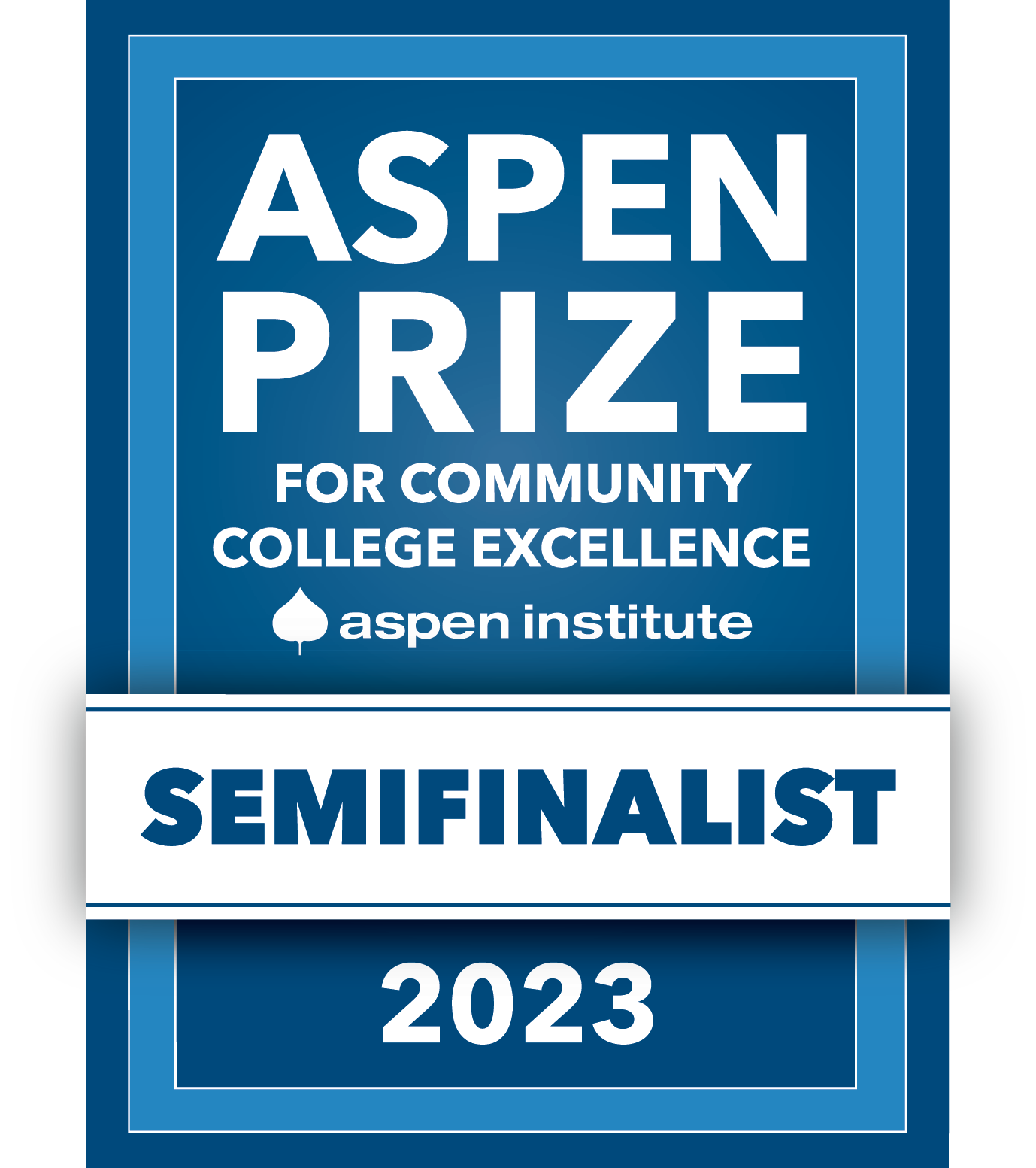- Welcome
- Campus Maps
- History
- Mission Statement
- Accreditation
- Administration
- Employment
- Human Resources Employment Process FAQ
- Position Vacancies
- Salary Schedule (PDF)
- Employee Benefits
- Paid Holidays
- Employee Handbook (PDF)
- Faculty Handbook (PDF)
- BENCOR Special Pay Plan (PDF)
- Social Security Collection and Usage
- Affordable Care Act Notice (PDF)
- Social Security Disclosure Summary (PDF)
- Tobacco-Free College
- Drug-Free Workplace & Campuses
- Technology Usage Acknowledgement (PDF)
- Employee Safety Manual (PDF)
- SFSC’s Annual Security and Fire Safety Report (PDF)
- Calendars
- News
- Social Media
- Honoring Our Retirees
- Celebrating Our Trustees
AVON PARK, Fla. – Feb. 5, 2018 –When Bobby Sconyers, South Florida State College (SFSC) dental assisting professor, was 10 years old, he decided he was going to join the army and retire from it. He did and, little did he know, the army would train him for a long career that he loves.
“I had one of several uncles who had been in the army,” Sconyers said. “He actually owned a house and he got a retirement check. I thought, ‘I want to do what he did.’”
Sconyers’ family had moved to Wauchula from Alabama when he was 5 years old to pick fruit and vegetables.
“We had cousins and uncles who were doing it and making money, so we just went where the money was,” he said.
By the time Sconyers was 7 years old, he could work in the fields along with his parents, two brothers, and a sister. “We picked almost every grove in Hardee County at one time or another. We picked cucumbers and peppers. We could do that throughout the school year.”
“I remember, we would go to school, we’d pick vegetables until dark in the cucumber fields, we’d go to the packing houses and pack those cucumbers until 10:30 or 11 p.m. Then we’d come home, take a shower, and go to bed. Next day, we’d do it again.”
The day school was out for the summer, the family would begin working in other fields, from Florida to Michigan, while living in migrant camps.
Sconyers graduated from Hardee High School in 1977. Because he had completed all of his credits by the first semester of his senior year in high school, he graduated early and joined the army. Before he could head to boot camp, he was required to wait six months to officially receive his high school diploma. In the meantime, he worked in the fields every day. Boot camp was at Fort Leonard Wood, Mo., and Sconyers’ first duty station was the Panama Canal Zone.
Dental assisting had never been on Sconyers’ mind when he took the Armed Services Vocational Aptitude Battery (ASVAB), a kind of placement test for the army.
After receiving top results in every category of the test, Sconyers was told that he could pick whatever job he wanted to do in the army. Sconyers said that he wanted to be a Green Beret. “They said, ‘Well, you can’t just pick Green Beret, you have to pick a job, and then try for that,’” he said. “’You can’t just join the Green Berets.’”
“They gave me a list of all these jobs that required a high score,” he said. “And dental assisting and dental lab technician were on the list, so I chose ‘dental.’ I randomly picked that. I had no idea what I was getting into.”
Sconyers trained to be a dental assistant and dental lab technician at the Academy of Health Sciences at Fort Sam Houston in Texas. He explained that the dental assisting program lasted six weeks, and the dental lab technician program was another eight weeks.
“I was a dental assistant and dental lab technician for 13 years,” Sconyers said. He went on to train as a dental hygienist, practicing at Fort Sam Houston for 18 months. He was then asked to teach—dental assisting, dental lab technician, and dental hygiene—and did so until his retirement in 1994.
In 1983, Sconyers had been stationed in Germany, where he met his wife Jill, who was also a dental assistant and dental lab technician with the army. The Sconyerses returned to Germany at a later date for three years, when Jill was stationed as First Sergeant of a dental unit in Giebelstadt. While in Germany, Bob was hired as a dental assistant at the Wurzburg American Army Hospital dental clinic.
“There were about 11 bases in the area we were responsible for,” he said. “I was hired to teach the spouses at all these bases around us to be dental assistants.”
“After they were trained, they could get really good jobs on base taking care of soldiers. It meant that these families now had an extra check coming in, which meant they could enjoy Europe more. Now they could do things they couldn’t afford to do before, and the dental clinics had the dental assistants they needed.”
In 2002, Jill was stationed in Washington State and served as First Sergeant of the Fort Lewis Dental Activity, and Bob took a job as a dental assistant at MacNeill Island Correctional Facility. A chance encounter at a conference inspired Sconyers to continue his education so that he could teach in the civilian world.
“A lady who ran a dental assisting program for the Olympia Community College System was presenting a class on what to do if you want to teach dental assisting in a college,” he said. “She said you needed a Bachelor in Arts degree, but I didn’t have mine. So I started taking classes at night at Evergreen State College to earn my bachelor’s degree.”
After Jill retired from the army, the Sconyerses returned to Hardee County. One day, a newspaper advertisement caught Sconyers’ attention. SFSC was looking for a dental assistant instructor. He began working at the college in 2006.
“I really enjoy the way dental is one of the fastest moving professions out there,” Sconyers said. “The stuff we get to work with is technologically in the forefront—x-rays, cone-beam radiation, a variety of dental materials, we can do digital impressions, we use CAD CAM systems. All the while, you’re helping other people.”
Sconyers never hesitates to encourage others to go train for dental assisting. “They can come to the program and, in one year, they learn what they need to get out there and have a job forever. They can make that grow if they want.”
Sconyers said that to grow in their career, a dental assistant should consider becoming a Certified Dental Assistant (CDA) through the Dental Assisting National Board. “It makes you more employable,” he said. “It gives you a broad knowledge of everything going on in dental, so you can have an intelligent conversation with a dentist. It can be a basis to other jobs, such as in insurance, where they like to hire dental assistants because they already know the vocabulary. Also sales, where they go to different clinics and sell whatever their company makes—dental materials, impression materials, or x-ray equipment.”
“A dental assistant can, eventually, teach,” he said. “I had a student last year who said, ‘I want your job.’ I told her ‘you need a bachelor’s degree and you need to keep up with your dental assisting certification.’”
Sconyers indicated that dental assistants can also go into dental hygiene. “I’ve had 10 or 11 of my students come back and go through the dental hygiene program at SFSC,” he said. “I never had any of them say that dental assisting was a waste of time. They all think it was the smartest decision they could have made because it allowed them to learn dental hygiene at a deeper level.”
Sconyers is a man who loves his job as a teacher. “Every day, I get to teach these young people and help them get a job that they can have for the rest of their lives,” he said. “And what could be better than that?”




